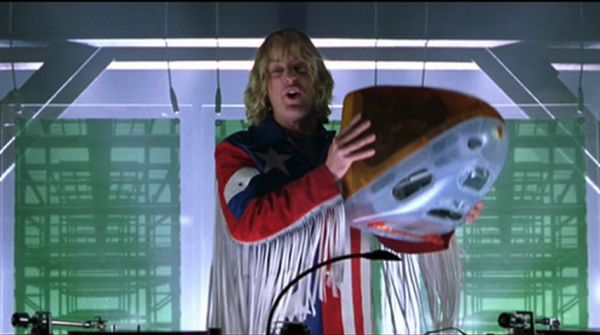File Server Builder's Guide
by Zach Throckmorton on September 4, 2011 3:30 PM ESTConclusion
Home file servers can be enormously useful in a multi-system residence. Adding such a specialty system to a home network is easy, and certain file server operating systems are also very simple to set up and administer. A home file server is also an easy introduction to servers in general. Remember, the primary purpose of a home file server is storage - so rather than building around the CPU or GPU, build a home file server around the HDDs. Home file servers don't need powerful CPUs - instead focus on power savings and adequacy rather than raw processing muscle. While it's difficult - perhaps impossible - to know what HDD models are most reliable, choose your case carefully and take time managing cables so you can maintain optimal environments for your drives. Buy high-quality PSUs so your HDDs are supplied with clean power. And of course, back up your data!
"The files are in the computer. It's so simple!"











152 Comments
View All Comments
jtag - Monday, September 5, 2011 - link
Exactly so: hdparm --make-bad-sectorThis is "Exceptionally dangerous. Do not use this option!!" according to the man page, which goes on to say "This can be useful for testing of device/RAID error recovery mechanisms."
pvdw - Sunday, September 4, 2011 - link
The best case I've found for a 4+ HDD SFF home server is the Lian Li PC-Q08. For me sound and size are most important.http://www.silentpcreview.com/Silent_Home_Server_B...
BTW, Linux has some significant advantages over WHS when used for more than just a file server. But I'll leave those for you look up.
pvdw - Sunday, September 4, 2011 - link
BTW, I forgot to mention some things about my configuration.Linux RAID-1+0 far copies
Automated local backups using hard-links
Auto-rotation of backups
Auto-rsync to single remote backup
VPN Server (not finished setting up yet as has become a lower priority)
Print Server
Torrent server (Transmission)
Webserver (web dev environment)
SSH
Most of that is more than you'll need, but I'd definitely recommend at least RAID1 and auto-backups for a file server.
bobbozzo - Wednesday, September 7, 2011 - link
A hard-link 'backup' won't protect you if the file is modified or corrupted.jacob733 - Sunday, September 4, 2011 - link
I set up a fileserver system based on H67 some time ago. Turns out there is a bottleneck somewhere so the SATA throughput is shared between multiple channels. When filling all the channels with magnetic storage, the total throughput is much lower than expected. My old NForce4-based system is actually much faster in this test, but it only supports 4 SATA channels so I can't use it for this.Perhaps Anandtech could add a test that fills all the SATA channels instead of just putting a single SSD on the first channel?
I would also like to warn about stuffing more than 5-6 disks into the same case. Putting more disks in there will take the combined startup current to the extreme, which will seriously reduce the PSU lifetime. Also, it doesn't help to get a larger PSU for this, since these PSUs are segmented, and all the extra wattage goes to support extra graphics cards and perhaps a large CPU, while the rails used for disks are kept fairly constant.
Whenever I have had a HDD crash in a system with many disks, I have later been able to track it to voltage fluctuations due to a dying PSU.
/Jacob
pvdw - Sunday, September 4, 2011 - link
Hard drives use the 12V line(s), which are the same ones used by graphics cards. Western Digital Green 2TB drives (WD20EARX), use a peak of 1.75A each. So you won't exceed the 20A+ current supplied by a good PSU.The biggest problem is that so many PSUs are rubbish!! Since most customers look at wattage and not the build quality of a PSU, they're conned into buying the wrong one. A good quality 300W PSU would easily run a 6-disk home server. I'd recommend something like the Seasonic S12II or M12II, or the Nexus Value 430.
Powerlurker - Monday, September 5, 2011 - link
The problem is that it's virtually impossible for a consumer to assess the build quality of a PSU before buying it.bigboxes - Monday, September 5, 2011 - link
Yup. I use a Seasonic S12 430 to power my 9 drive file server. Rock solid. Runs 24/7. Got tired of having HDDs die due to the bad PSU so I invested in a quality one. I also use a APC 1250VA UPS as well to add to the system's reliability.Iketh - Sunday, September 4, 2011 - link
you know, reading through these comments, I'm liking my idea more and more...use a cheap laptop and daisy chain the hell out of 2.5" hdds... yea
Iketh - Sunday, September 4, 2011 - link
excuse me, I should clarify that by daisy chain = powered hub